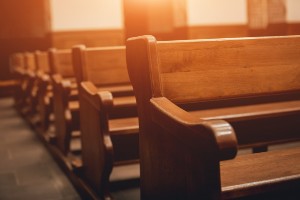
Legal Framework for Hiring Practices
In the United States, the primary federal law governing employment discrimination is Title VII of the Civil Rights Act of 1964. This law prohibits employers from discriminating based on race, color, religion, sex, or national origin. However, there are specific exemptions for religious organizations.
Religious Exemption
Title VII includes a religious exemption allowing religious organizations to give employment preference to individuals of the same religion. This means that a church, synagogue, mosque, or other religious entity can legally require that its employees share the same faith.
Ministerial Exception
The ministerial exception is a legal doctrine that exempts religious institutions from anti-discrimination laws in hiring and firing decisions concerning their ministers. This exception is broad and can apply to a variety of roles beyond traditional clergy positions, depending on the nature of the work and its importance to the religious mission of the organization.
Broader Implications
These exemptions allow religious organizations to maintain their religious integrity and ethos. However, they do not permit discrimination based on other protected characteristics unrelated to religion, such as race or gender, unless such distinctions are directly related to the religious organization’s core beliefs and practices.
When is Discrimination Unlawful?
While religious organizations have certain freedoms, there are limits. Here are instances where discrimination may still be unlawful:
- Non-religious roles: For positions that are not directly involved in the religious mission, such as administrative or custodial roles, religious organizations cannot discriminate based on race, gender, or other non-religious factors.
- Exceeding the scope: Even for religious roles, if discrimination is based on characteristics not essential to the religious function, such as race or disability, it may be unlawful.
- State and local laws: Some states and localities have anti-discrimination laws that are more stringent than federal laws, offering less leeway for religious exemptions.
Why Contact an Employment Attorney?
If you believe you have been discriminated against during the hiring process by a religious organization, consulting with an employment attorney is essential. They’ll provide expert analysis and help you navigate complex laws specific to your case. They’ll gather evidence and help you develop the best legal strategy possible.
While religious organizations have certain exemptions from anti-discrimination laws, there are limits to these exemptions. Discrimination that extends beyond religious requirements, especially in non-religious roles, may still be unlawful. If you believe you were a victim of discrimination during the hiring process within a religious organization, consulting with an experienced employment attorney is crucial. They can help you understand your rights, gather necessary evidence, and navigate the legal complexities to ensure that justice is served.
If you have questions about discrimination in the workplace or you’re concerned about a specific situation, we can help. Contact Borrelli & Associates, P.L.L.C. to discuss your case.


















